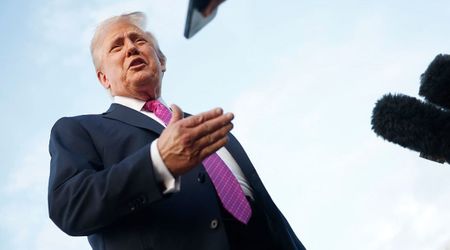Here are Financial Strategies to Balance Indulgence with Savings During Inflation

Balancing joy and savings: Insights from financial experts

In the face of rising inflation, Americans are exploring innovative budgeting techniques to manage their finances more effectively in 2024. During these times, Larry Sprung, author of "Financial Planning Made Personal," has highlighted the importance of striking a balance between immediate gratification and savings for the future. This approach is essential in developing a sustainable financial strategy that accommodates both present needs and future goals.
Utilizing paid time off and high-yield savings
Veetahl Eilat-Raichel, a financial wellness expert, recommends viewing paid time off (PTO) as a financial asset that can be converted into cash to reduce debts. This strategy can potentially unlock around $3,000 annually for an average employee. In addition to that, she suggests investing in high-yield savings accounts, which can significantly outperform traditional savings methods.
The rise of 'loud budgeting' and transparency in personal finance
The new year also saw the trend called "loud budgeting" gain traction, as it encourages people to be open about their financial limitations. This approach involves openly discussing financial constraints with friends and family, opting for second-hand purchases, and carefully considering essential expenses. Bank of America's survey indicates that 81% of Americans have set financial goals for the year, with strategies such as spending less, adhering to a budget, and investing in high-yield savings. Mary Hines Droesch of Bank of America stresses the importance of public commitment in making "loud budgeting" effective. She also advises following the 50/30/20 rule for budget allocation.

Empowering young Americans: The social impact of financial awareness
The "loud budgeting" trend is proving particularly beneficial for younger generations, as a significant number of Gen Z and millennial adults are reconsidering friendships that lead to overspending. Brian Ford, a Wealth Management Advisor at Northwestern Mutual, notes that economic challenges like student loans and inflation have prompted younger Americans to prioritize financial well-being. Courtney Alev from Credit Karma supports "loud budgeting," as it promotes savings and challenges the stigma around financial prudence.
Digital tools for budget management
In the digital age, technology plays a pivotal role in managing personal finances. Financial technology apps are becoming increasingly popular, offering users a comprehensive platform to track spending, set budget goals, and monitor savings progress in real-time. These apps can be integrated with bank accounts and credit cards, to provide a seamless and automated experience in financial tracking. Features such as automatic categorization of expenses and personalized saving tips tailored to individual spending habits are enhancing users' ability to control their finances. By harnessing these digital tools, individuals can gain deeper insights into their spending patterns and make more informed decisions, leading to improved financial health.
Simply put, as Americans adapt to the financial challenges of 2024, a combination of innovative budgeting strategies, practical financial hacks, transparent budget management, and a cultural shift towards open financial discussions is shaping a new era of personal finance management. These approaches offer a pathway to not only endure inflation but also to thrive by making informed and balanced financial decisions.





















